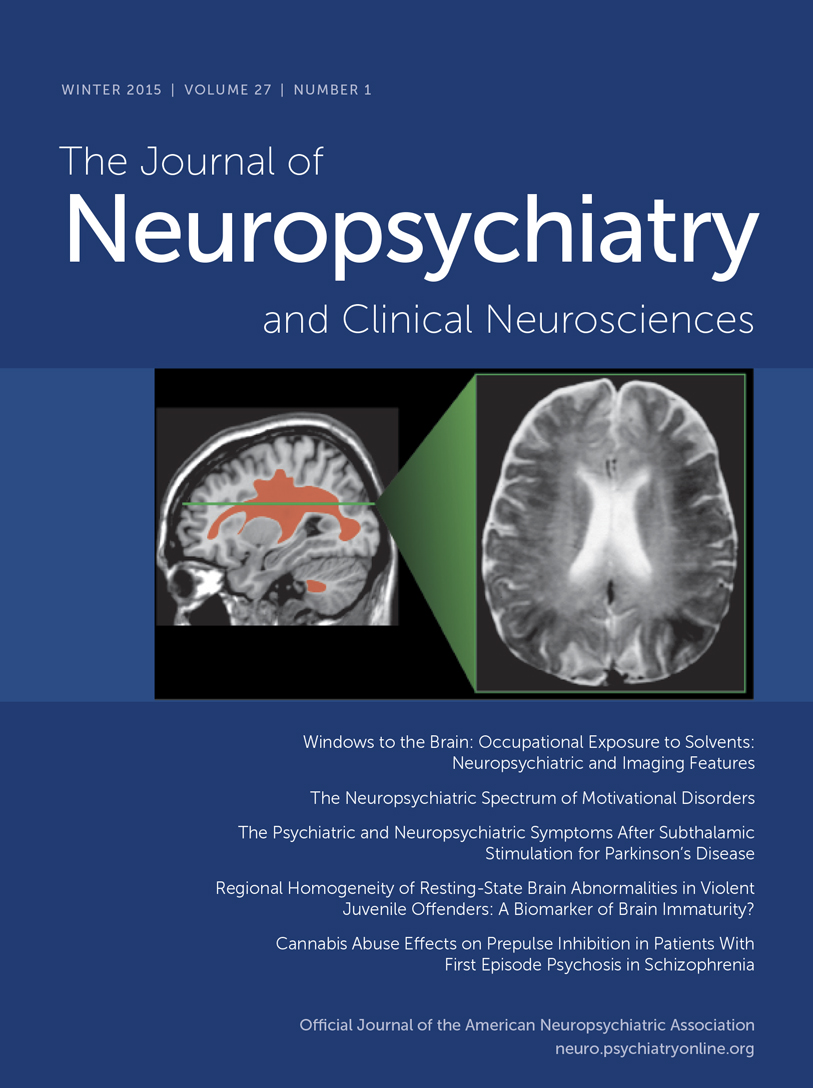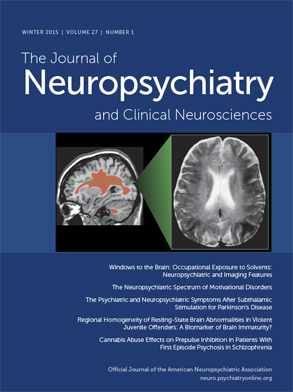To the Editor: Intractable hiccup poses a management challenge to clinicians. There have been case reports of baclofen use in such patients. We are also reporting a case of chronic idiopathic intractable hiccup who showed marked improvement with baclofen and supportive treatment.
Hiccup or hiccough is known by the medical term “singultus,” which is derived from a Latin word “singult,” which means “a gasp” or “a sob.” Hiccups are characterized by involuntary, intermittent, spasmodic contractions of the diaphragm and the intercostal muscles, leading to an abrupt closure of the glottis generating the characteristic “hic” sound. Mostly hiccups are of acute onset, which are self-limiting and of the benign type, whereas persistent and intractable hiccups are those that last for more than 48 hours or 1 month, respectively.
1 Intractable hiccups present a diagnostic challenge to physicians, especially when no identifiable organic cause is elicitable. However, such cases are invariably referred for psychiatric evaluation and treatment. A case of intractable hiccups that showed significant improvement with baclofen is presented.
Case Report
A 48-year-old patient, who was apparently well 10 months before presentation, started experiencing a constriction in the left side of the chest, difficulty in breathing accompanied by a sense of heaviness in the left upper abdomen, and belching. He also had difficulty in swallowing solid food but not liquids. There was no history of pain in the abdomen, retrosternal burning, hematemesis, or melena. Initially, he reported to the medical outpatient department where he was examined and diagnosed as a case of “belching cause?”. All investigations such as ECG, chest X-ray, upper gastrointestinal endoscopy, ultrasonography of abdomen, fasting blood sugar, hemogram, liver and kidney function tests, and urine and stool examination were within the normal limits. He was prescribed albendazole 400 mg stat (single dose only) and pentoprazole 40 mg plus domperidone 30 mg sustained release combination per day, which gave him some relief. The belching continued for the next 5 months, after which the patient started getting hiccups that worsened with the passage of time. He again sought medical consultation, was again prescribed pentoprazole plus domperidone, and was advised to have a psychiatric referral.
In psychiatry, the patient was diagnosed with a case of “intractable hiccup cause idiopathic” and was prescribed paroxetine 12.5 mg twice daily and chlorpromazine 50 mg at bed time for 2 weeks. Noticing no relief, he was admitted for detailed workup. His history revealed that the patient had repetitive hiccups lasting for a whole day that was worse while speaking, could hardly be controlled for 1–2 minutes, and was absent during sleep. There was no associated pain abdomen, difficulty in breathing, coughing, or swallowing of food. Hiccups caused marked distress and difficulty in carrying out a normal conversation and performing his duties, leading to sickness absenteeism. Except for an understandable concern and preoccupation with his symptoms, detailed history and examination did not reveal any significant psychosocial stressor or comorbid psychiatric or medical illness. All relevant investigations were normal, as before. He was prescribed extended release baclofen sodium 20 mg/day orally along with clonazepam 1 mg/day, divided. The frequency of the hiccups started decreasing after the first dose of baclofen. Improvement continued with the passage of time, and on the sixth day, the patient was 50% better. On the seventh day, the dose was increased to 20 mg twice daily, and on the eighth day, 80% improvement was noticed. Clonazepam was gradually tapered off over 2 weeks; the patient went back to his duties and maintained improvement after 1 month on 40 mg of baclofen per day.
Discussion
The etiology of intractable hiccups may include structural or functional disturbances of the medulla, afferent or efferent nerves to the respiratory muscles, metabolic and endocrine disorders, drugs, general anesthesia, and psychological problems.
2Nonpharmacological treatment methods such as breath holding, drinking cold water, adn inserting a nasogastric tube are found ineffective in cases of persistent hiccups. However, various pharmacological agents such as chlorpromazine, haloperidol, olanzapine, amitriptyline, methylphenidate, metoclopramide, phenytoin, valproic acid, carbamazepine, nifedipine, lidocaine, and midazolam including baclofen, have been reported to be useful in such hiccups.
3–5 In addition to pharmacological therapy, interventional methods such as phrenic nerve block have also been advocated for the treatment of intractable hiccups.
6In the present case, the hiccups were of more than 1-month duration, and there was no identifiable cause of the hiccups. Although brain imaging was not done, central nervous system causes for hiccups could be excluded in our patient because there was no suggestion of any neurological deficit on clinical examination. The patient did not respond to treatments with domperidone, pentoprazole, chlorpromazine, etc., and therefore, baclofen was started, which worked quickly. Clonazepam was added to ease his anxiousness and induce sleep, whereas supportive treatment in the form of assurance, support, psycho-education, and counseling was also instituted to address the accompanying psychosocial distress. It can be said with certainty here that the main factor contributing to improvement was baclofen because the frequency and intensity of the hiccups started decreasing just after the first dose of baclofen. Also, the improvement increased with time and higher dose (40 mg/day) of baclofen and was maintained even 1 month after discharge when clonazepam had been stopped.
Baclofen, a GABA analog that has been thought to depress reflex hiccup activity,
7 was found quite effective in controlling the intractable hiccups in our case, and this observation is in agreement with other such reports in this area.
7–9 Patients with chronic intractable hiccups run a risk of dehydration, insomnia, depression, gastrointestinal disorders, such as gastroesophageal reflux, and even death.
3 The present case report calls for early institution of baclofen in intractable hiccup cases of idiopathic origin to prevent unnecessary morbidity, disability, and risk of mortality. However, while prescribing baclofen, important precautions to be kept in mind are to ensure normal kidney functions (as it is mainly excreted by kidneys) and to use gradual tapering of the dose to prevent withdrawal symptoms.
10
